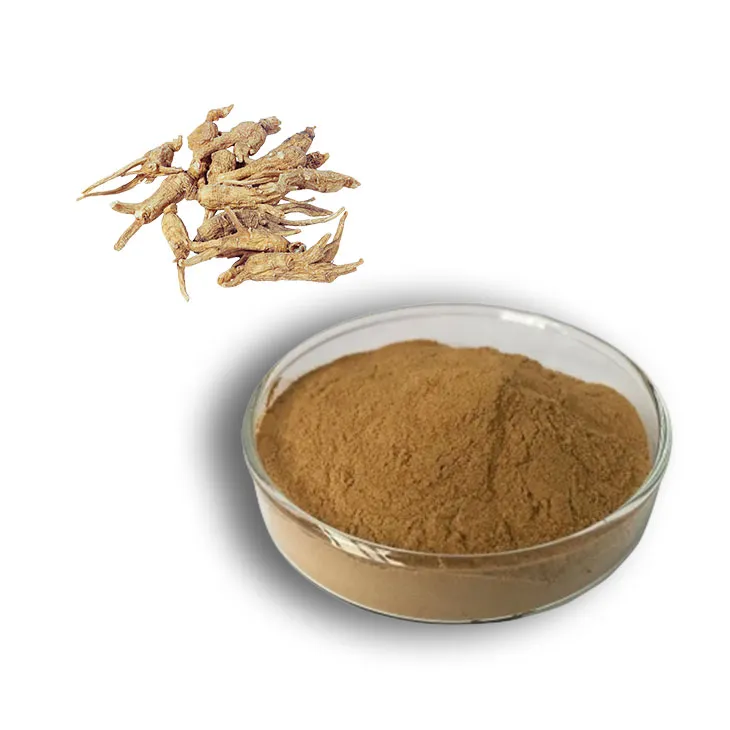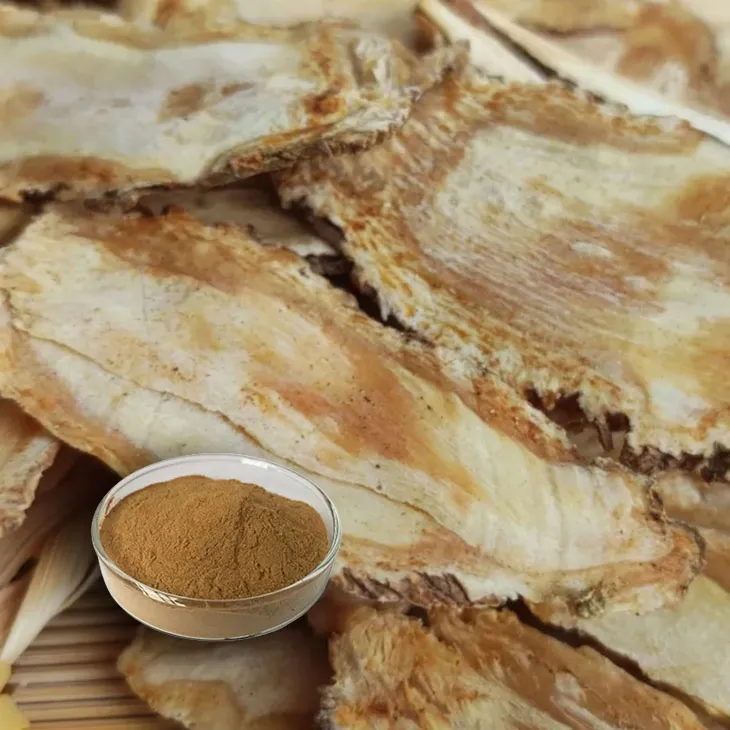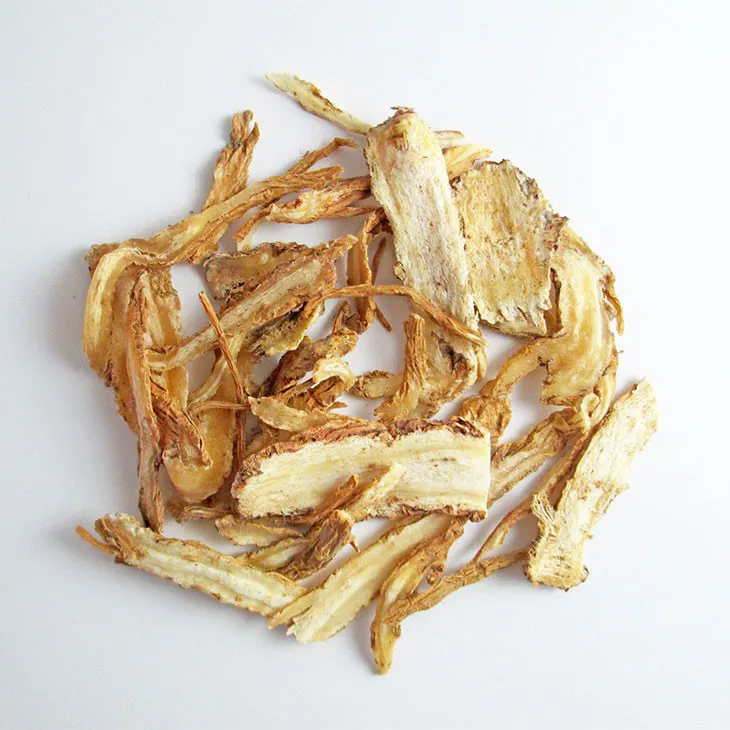- 0086-571-85302990
- sales@greenskybio.com
Angelica sinensis extract can reduce hypertension.
2024-11-12

1. Introduction
Hypertension, also known as high blood pressure, is a significant global health concern. It is a major risk factor for various cardiovascular diseases, including heart attacks, strokes, and heart failure. The prevalence of hypertension has been increasing steadily worldwide, mainly due to lifestyle factors such as sedentary behavior, poor diet, and stress. Current treatment options for hypertension mainly include lifestyle modifications and pharmacological agents. However, these treatments may have some limitations, such as side effects and poor compliance. Therefore, there is a growing interest in finding alternative natural remedies for hypertension.
Angelica sinensis, also known as Dong Quai, is a well - known traditional Chinese medicinal herb. It has been used for centuries in Chinese medicine to treat various gynecological disorders, blood - related diseases, and pain. Recent studies have suggested that the extract of Angelica sinensis may have potential benefits in reducing hypertension. This article aims to explore how Angelica sinensis extract may influence factors related to high blood pressure, such as vascular function, neurotransmitter balance, and inflammatory responses, providing new insights into alternative ways of managing hypertension.

2. Vascular Function and Angelica sinensis extract
Vascular Endothelial Function: The endothelium, which lines the interior surface of blood vessels, plays a crucial role in maintaining vascular homeostasis. Endothelial dysfunction is an early event in the development of hypertension. It is characterized by a reduction in the production of vasodilators, such as nitric oxide (NO), and an increase in the production of vasoconstrictors. Angelica sinensis extract has been shown to improve endothelial function in several ways.
One of the mechanisms by which Angelica sinensis extract may enhance endothelial function is through its antioxidant properties. Oxidative stress is a major contributor to endothelial dysfunction. Reactive oxygen species (ROS) can inactivate NO, leading to vasoconstriction. Angelica sinensis extract contains various antioxidant compounds, such as flavonoids and phenolic acids, which can scavenge ROS and protect the endothelium from oxidative damage. For example, a study found that treatment with Angelica sinensis extract increased the activity of antioxidant enzymes and reduced the levels of lipid peroxidation in endothelial cells.
Another way in which Angelica sinensis extract may affect vascular function is by modulating the expression of endothelial - derived factors. For instance, it has been shown to up - regulate the expression of endothelial nitric oxide synthase (eNOS), the enzyme responsible for the production of NO. By increasing eNOS expression, Angelica sinensis extract can promote the production of NO, leading to vasodilation and a reduction in blood pressure.
Vascular Smooth Muscle Function: Vascular smooth muscle cells play an important role in regulating blood vessel diameter. In hypertension, there is an increase in the contractility of vascular smooth muscle cells, leading to vasoconstriction. Angelica sinensis extract may also have an impact on vascular smooth muscle function.
Some studies have suggested that Angelica sinensis extract can relax vascular smooth muscle cells. This relaxation may be mediated by multiple mechanisms. One possible mechanism is through the inhibition of calcium influx into smooth muscle cells. Calcium is an important regulator of smooth muscle contraction. By reducing calcium entry, Angelica sinensis extract can decrease the contractility of smooth muscle cells, resulting in vasodilation.
Another mechanism may involve the modulation of potassium channels in smooth muscle cells. Activation of potassium channels can lead to hyperpolarization of the cell membrane, which in turn inhibits calcium influx and smooth muscle contraction. Angelica sinensis extract has been shown to activate certain potassium channels in vascular smooth muscle cells, contributing to vasodilation.

3. Neurotransmitter Balance and Angelica sinensis Extract
The autonomic nervous system plays a crucial role in regulating blood pressure. An imbalance in neurotransmitter release from the autonomic nervous system can lead to hypertension. Angelica sinensis extract may help to restore the balance of neurotransmitters involved in blood pressure regulation.
Sympathetic Nervous System: The sympathetic nervous system is mainly responsible for increasing blood pressure through the release of norepinephrine. In hypertension, there is often an over - activation of the sympathetic nervous system. Angelica sinensis extract may have an inhibitory effect on the sympathetic nervous system.
Some studies have shown that Angelica sinensis extract can reduce the release of norepinephrine from sympathetic nerve endings. This may be due to its ability to modulate the activity of presynaptic receptors. By reducing norepinephrine release, Angelica sinensis extract can decrease the sympathetic drive on the heart and blood vessels, leading to a reduction in blood pressure.
Moreover, Angelica sinensis extract may also affect the central regulation of the sympathetic nervous system. It has been suggested that certain components of the extract can cross the blood - brain barrier and interact with central nervous system receptors involved in sympathetic regulation. This interaction may lead to a decrease in sympathetic outflow from the brain, further contributing to blood pressure reduction.
Parasympathetic Nervous System: The parasympathetic nervous system has a counter - regulatory effect on the sympathetic nervous system and is involved in lowering blood pressure. Angelica sinensis extract may also enhance the activity of the parasympathetic nervous system.
One possible mechanism is through the stimulation of acetylcholine release. Acetylcholine is the main neurotransmitter of the parasympathetic nervous system. By increasing acetylcholine release, Angelica sinensis extract can promote parasympathetic - mediated vasodilation and bradycardia, which can help to lower blood pressure.

4. Inflammatory Responses and Angelica sinensis Extract
Chronic inflammation is increasingly recognized as an important factor in the development and progression of hypertension. Inflammatory mediators can promote endothelial dysfunction, vascular remodeling, and activation of the sympathetic nervous system. Angelica sinensis extract may have anti - inflammatory properties that can be beneficial in the context of hypertension.
Angelica sinensis extract contains several compounds with anti - inflammatory activity, such as polysaccharides and coumarins. These compounds can inhibit the production of pro - inflammatory cytokines, such as interleukin - 1β (IL - 1β), interleukin - 6 (IL - 6), and tumor necrosis factor - α (TNF - α). For example, a study demonstrated that treatment with Angelica sinensis extract reduced the levels of IL - 1β and TNF - α in an animal model of hypertension.
Furthermore, Angelica sinensis extract can also modulate the activity of immune cells involved in the inflammatory response. It has been shown to inhibit the activation of macrophages, which are key players in the production of inflammatory mediators. By suppressing macrophage activation, Angelica sinensis extract can reduce the overall inflammatory burden in the body, which may contribute to the improvement of hypertension.
5. Clinical Evidence and Future Directions
Clinical Studies: Although pre - clinical studies have shown promising results regarding the potential of Angelica sinensis extract in reducing hypertension, the evidence from clinical studies is still limited. Some small - scale clinical trials have been conducted, but more large - scale, well - designed clinical trials are needed to confirm the efficacy and safety of Angelica sinensis extract in humans.
In one small - scale clinical trial, patients with mild - to - moderate hypertension were treated with Angelica sinensis extract for a certain period. The results showed a significant reduction in blood pressure compared to the placebo group. However, this study had some limitations, such as a small sample size and a relatively short treatment duration.
Future Research Directions: Future research should focus on several aspects to further explore the potential of Angelica sinensis extract in treating hypertension.
First, more in - depth studies are needed to elucidate the exact mechanisms of action of Angelica sinensis extract at the molecular and cellular levels. Understanding these mechanisms will help to develop more targeted and effective treatment strategies.
Second, large - scale clinical trials with long - term follow - up are required to evaluate the efficacy and safety of Angelica sinensis extract in different populations, including those with comorbidities. These trials should also compare the effectiveness of Angelica sinensis extract with existing antihypertensive drugs.
Finally, research should also be carried out to optimize the extraction and formulation of Angelica sinensis extract to improve its bioavailability and therapeutic efficacy.
6. Conclusion
In conclusion, hypertension is a major global health problem, and there is a need for alternative treatment options. Angelica sinensis extract has shown potential in reducing hypertension through its effects on vascular function, neurotransmitter balance, and inflammatory responses. However, more clinical evidence is needed to confirm its efficacy and safety in humans. Future research should focus on elucidating the mechanisms of action, conducting large - scale clinical trials, and optimizing the extract formulation. If further studies support its use, Angelica sinensis extract may become a valuable addition to the existing armamentarium for the management of hypertension.
FAQ:
Question 1: How does Angelica sinensis extract affect vascular function in relation to hypertension?
Angelica sinensis extract may contain bioactive compounds that can interact with the cells lining the blood vessels. It might promote vasodilation, which means widening the blood vessels. This helps in reducing the resistance to blood flow, and as a result, can lower blood pressure. Some of the components in the extract may stimulate the release of nitric oxide, a molecule that relaxes the smooth muscle cells in the vessel walls, thereby improving vascular function and contributing to the reduction of hypertension.
Question 2: What role does Angelica sinensis extract play in neurotransmitter balance to combat hypertension?
The extract could potentially influence neurotransmitter balance. In hypertension, there may be an imbalance in neurotransmitters such as norepinephrine, which can increase blood pressure. Angelica sinensis extract may act on the nervous system to regulate the release or reuptake of these neurotransmitters. For example, it might reduce the excessive release of norepinephrine, leading to a more balanced state in the nervous system and ultimately helping to lower blood pressure.
Question 3: Can Angelica sinensis extract modulate inflammatory responses to reduce hypertension?
Yes, it is possible. Inflammatory processes are often associated with hypertension. Angelica sinensis extract may possess anti - inflammatory properties. It can target the inflammatory pathways in the body. By reducing inflammation, it may prevent or reverse some of the pathological changes in the blood vessels and other tissues that contribute to high blood pressure. For instance, it may inhibit the production of pro - inflammatory cytokines, which are molecules involved in promoting inflammation.
Question 4: Are there any side effects of using Angelica sinensis extract for hypertension?
While Angelica sinensis extract shows potential in reducing hypertension, there may be some side effects. Some people may experience allergic reactions to the extract. Also, it could interact with certain medications. For example, if a person is taking blood - thinning medications, the extract may increase the risk of bleeding due to its potential anticoagulant properties. Therefore, it is important to consult a healthcare provider before using it for hypertension treatment.
Question 5: How much Angelica sinensis extract should be taken for effective hypertension management?
Currently, there is no standardized dosage for using Angelica sinensis extract specifically for hypertension. Dosage can vary depending on factors such as the form of the extract (e.g., powder, tincture), the individual's health status, and body weight. Research is still ongoing to determine the optimal dosage. It is crucial that any use of the extract for hypertension management be done under the guidance of a healthcare professional.
Related literature
- The Effects of Angelica sinensis on Cardiovascular Health: A Review"
- "Angelica sinensis Extract and Blood Pressure Regulation: Mechanistic Insights"
- "Anti - hypertensive Properties of Natural Compounds: Focus on Angelica sinensis"
- ▶ Hesperidin
- ▶ citrus bioflavonoids
- ▶ plant extract
- ▶ lycopene
- ▶ Diosmin
- ▶ Grape seed extract
- ▶ Sea buckthorn Juice Powder
- ▶ Beetroot powder
- ▶ Hops Extract
- ▶ Artichoke Extract
- ▶ Reishi mushroom extract
- ▶ Astaxanthin
- ▶ Green Tea Extract
- ▶ Curcumin Extract
- ▶ Horse Chestnut Extract
- ▶ Other Problems
- ▶ Boswellia Serrata Extract
- ▶ Resveratrol Extract
- ▶ Marigold Extract
- ▶ Grape Leaf Extract
- ▶ blog3
-
Cranberry Plants and Skin - care Products.
2024-11-12
-
Aguaje Extract
2024-11-12
-
Oyster Mushroom Extract Powder
2024-11-12
-
Elderberry Extract
2024-11-12
-
Beetroot Powder
2024-11-12
-
Plantain extract
2024-11-12
-
Curcuma Longa Extract/Turmeric extract
2024-11-12
-
Hawthorn powder
2024-11-12
-
Cocoa Extract
2024-11-12
-
Jujube Extract
2024-11-12
-
Withania Somnifera Extract
2024-11-12





















